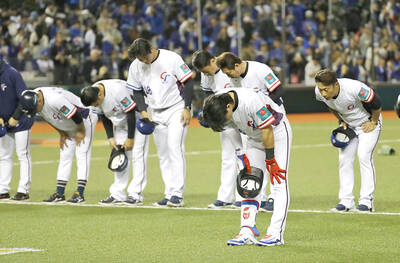The ancient sport of kabaddi, most popular in India’s rural north. is ironically making headlines for a modern-day menace — doping.
A World Cup being sponsored by the Indian state of Punjab has been marred by rampant use of performance-enhancing drugs resulting in at least 34 positive cases, excluding those banned for refusing to be tested.
Players from Britain, Australia, the US, Spain, Canada, Italy, Norway, Germany, Argentina and India have failed tests — teams representing Australia and the US were withdrawn from competition — and more cases are likely to be reported.
The bigger than usual prize money at stake in a sport that combines speed, strength and endurance with the rugged elements of rugby, wrestling and tag seems to have turned players to performance-enhancing substances.
And the head-turning number of doping cases is probably because of the fact that very few of the 250 players in the tournament expected to be tested — after all, there’s no international kabaddi federation — and partly because of ignorance about the list of banned substances.
“We were asked by the organizers to test players for doping,” Indian National Anti-Doping Agency (NADA) director-general Rahul Bhatnagar said in a telephone interview. “They had asked for some 70 players to be tested, but once we saw rampant doping, we decided to test every participant.”
As a result, the tournament involving 14 men’s teams and four squads in the women’s draw has been mired in controversy, outstripping even the number of doping cases at the trouble-plagued Commonwealth Games in New Delhi last year.
Expats from the subcontinent have taken the 4,000-year-old rustic game to all parts of the world. It’s popular because it requires little more than a square piece of land about half the size of a basketball court for matches and can be played indoors or out, on the beach, on grass, dirt or mud.
The lure of big money by kabaddi standards — the World Cup promises a purse of US$400,000 to the men’s champion team and US$200,000 to the runner-up — has attracted players from all over the world.
Although kabaddi has grown internationally since being introduced as a demonstration sport in the 1982 Asian Games in New Delhi, it does not have an international governing body. And there are various versions of the game with different rules.
The sport still has its spiritual home in India, where the National Kabaddi League has a prize of US$20,000 for the champion team. However, there are multiple leagues in most countries centered around places where South Asian expats have migrated.
World Anti-Doping Agency compliance was unlikely because of the absence of a recognized international federation, so players were surprised when anti-doping officials came visiting the 16 cities and towns across Punjab that staged matches of the second edition of the World Cup.
“The number of cases were a shock to us. But the list only kept increasing since we tested two players from each team in every match,” Bhatnagar said.
Another NADA official, V. Jayaraman, told Canadian media that steroid use was “problematic because the game is being spoiled by big money.”
So how is kabaddi played?
The seven-a-side version that is popular in south Asia and has been a regular medal sport in the Asian Games since 1990 is played between two teams. One team sends a raider into the rival half of the field to gain points by tackling, wrestling, grabbing or tagging opponents.
The raider enters the other team’s court chanting the word “kabaddi” until he runs out of breath. In the meantime, he tries to touch opposing players and then return to his own half to earn points. If he makes it back, the players he touched are out of the game.
Teams take turns to send raiders, with the aim of the defending team to either evade the raider or tackle him in such a way that he fails to return to his side before running out of breath.
India’s team hasn’t been badly tarnished at the tournament, but that’s because players were tested in trials earlier in the year — when 20 of 50 players tested positive to banned substances.
Leading up to the semi-finals on Friday, the doping count was six each from Australia and Britain, five each from Canada and Spain, four from the US, three from Italy, two from Norway and one each from Germany and Argentina.
Not surprisingly, there have been allegations of dope results being manipulated.
“Our surprise win over Pakistan has led to these dope test results,” US team manager Surinder Atwal told reporters in Punjab Province. “Organizers want an India-Pakistan final and our 20 years of hard work in trying to build a US team has gone to waste.”
The ongoing World Cup culminates with the finals scheduled for today in Ludhiana, Punjab’s biggest industrial town.

Team Taiwan are set to face Spain in a win-or-go-home match tonight for the final berth at the 2026 World Baseball Classic (WBC), despite losing to Nicaragua 6-0 in the WBC qualifier at the Taipei Dome on Sunday. The home team’s loss on Sunday means Nicaragua finish first in the qualifier round in Taipei with a perfect 3-0 record and advances to next year’s finals. After crushing South Africa 9-1 earlier on Sunday, Spain took second place in the four-team qualifier with a 2-1 record. With a 1-2 record, Taiwan finished third while South Africa placed at the bottom with

Team Taiwan avoided missing the World Baseball Classic (WBC) for the first time by defeating Spain 6-3 in a do-or-die game in Taipei last night. After narrowly escaping a mercy-rule loss to Spain in the WBC Qualifiers opener on Friday last week, the home team — winner of last year's WBSC Premier12 title three months ago — got their revenge against the 2023 European champions at Taipei Dome. "It felt quite different from when we won the Premier12," Taiwan captain Chen Chieh-hsien (陳傑憲) said after the game, recalling the ups and downs the team has experienced over the past few days. Unlike in

LONG TIME COMING: With the addition of Marcus Smart, the Washington Wizards finally held a team to under 100 points, the last team this season to do so The Detroit Pistons on Monday won their seventh straight game in the NBA with in-form Cade Cunningham making 32 points and grabbing nine rebounds in a 106-97 win over the Los Angeles Clippers. The Pistons, who are in the playoff position, moved to 32-26, their best record at this stage of a season for 17 years. It was an all-round effort from Detroit with Tobias Harris adding 20 points and Jalen Duren making 19 rebounds along with his 12 points. It was a tight contest until Detroit pulled away late in the third quarter to tie their longest winning streak since the 2014-2015

SIBLING RIVALRY: Marc Marquez was locked in a duel with his little brother, falling behind at one point before recovering for his first season-opening victory since 2014 Six-time world champion Marc Marquez yesterday won the MotoGP season-opening Thailand Grand Prix to complete a dominant debut weekend at his new Ducati Lenovo Team, having also romped to Saturday’s sprint. The Spanish great took the 26-lap grand prix by 1.732 seconds for his 63rd MotoGP victory from younger brother Alex Marquez, who is still seeking a first checkered flag, with Francesco Bagnaia third to complete an all-Ducati podium. It completed a perfect weekend for Marc Marquez, who took pole position, the sprint victory and the grand prix win for a maximum 37 points to open the 22-leg 2025 campaign. He led from